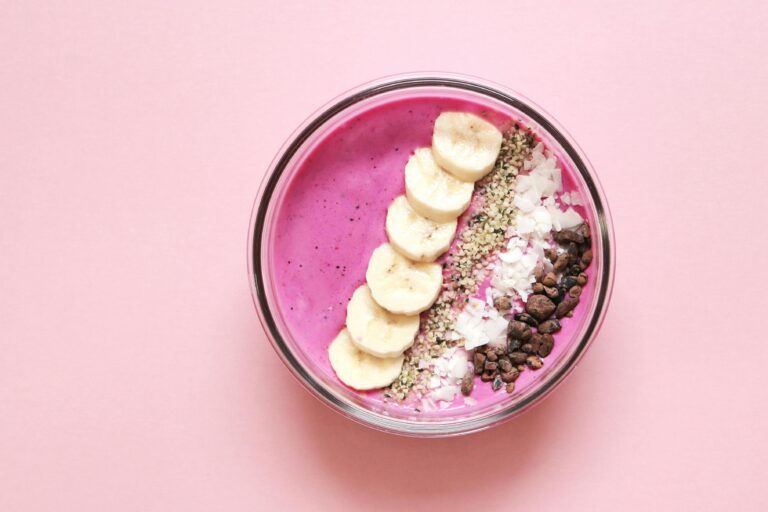Take a deep dive into the subject of psychiatry and you’ll eventually uncover it has a nutritional aspect. There is an emerging consensus within the field of psychiatry that food is as effective or even more effective than prescription medications.
“You are What You Eat”
The popular adage of “you are what you eat” has never rang truer. However, the foods you eat do more than determine body chemistry.
The foods you eat also shape brain chemistry and thoughts, directly influencing the gut-brain connection.
Eat healthy and you’ll be much more likely to have a healthy mind in addition to a healthy body.
The food you eat impacts cognition, memory, mood and even plays a role in preventing mental illness. The twist is that doctors are not educated about the subtleties of nutrition. Medical school programs emphasize human biology as opposed to nutrition.
As a result, people are gradually gravitating toward psychiatrists instead of doctors for health guidance. A nutritional psychiatrist is eager to discuss the role of diet in mental health while doctors typically sidestep the topic.
Nutritional Psychiatry to the Rescue
Nutritional psychiatry is useful in that it lays out detailed action-oriented strategies and steps for patients to follow. Adhere to such guidance and you’ll enhance the connection between the stomach and the brain by way of the vagus nerve.
The food you eat impacts how you feel, think and look. Food is especially important for energy and emotion. Eat a nutritious and balanced diet highlighted by two or three square meals strategically spaced throughout the day and you’ll find your mood also improves. Moreover, healthy eating at designated intervals also helps mitigate anxiety.
The proof is in the pudding, literally. A SMILES trial proved food makes a significant impact on mood. SMILES is an acronym short for Supporting the Modification of Lifestyle in Lowered Emotional States. A separate study explored systematic reviews including an overarching meta-analysis into observational analyses to understand healthy dietary indices. The purpose of the analysis was to gauge the impact of food on depressive outcomes.
The conclusion of the study was that those who adhered to a healthy diet were less likely to be depressed. In particular, the study highlighted how the Mediterranean diet and diets that emphasize foods that don’t cause inflammation protect against depression.
The Human Gut Shapes the Human Mind
The gut consists of bacteria that play vitally important roles in physical and mental health. Gut bacteria guards against pathogens, detoxes the body, assists in immune system training and modulates the nervous system.
Psychiatrists aware of the role nutrition plays in mental health often highlight how 90% of the body’s serotonin receptors are within the gut. It is those serotonin receptors that determine happiness, mood and other aspects of mental health.
Though few are aware of it, the reliance on Big Pharma medication such as an antidepressant prompts adverse effects related to the gut. Fluoxetine, sertraline and other antidepressants have the potential to lead to vomiting, dry mouth, nausea and diarrhea.
What sense is there taking the risk of such harsh side effects when you can sidestep antidepressants altogether?
Eat wisely and you’ll reap the mental benefits, preventing the need for Big Pharma “happy pills”.
Eating Strategies to Improve Your Mind and Body
The study referenced above stresses the benefits of healthy eating with a focus on the Mediterranean diet. The diet along with foods that minimize inflammation help prevent depression.
Examples of the best foods to eat to minimize inflation and boost mental health include:
– Whole grains
– Poultry
– Seafood
– Olives
– Olive oil
– Fresh fruit
– Vegetables
– Beans
– Nuts
– Leafy greens
When shopping for leafy greens, give preference to romaine, arugula, spinach and kale. Walnuts and almonds are the best nuts for combating inflammation while boosting protein intake. Nutritional psychiatrists agree broccoli and cauliflower are the top cruciferous vegetables.
Protect Your Microbiome and Your Mind
The microbiome, meaning the gut environment of the body, plays an important role in metabolic disease and mental health. The food you eat shapes the composition of your microbiome. Most Western diets are rife with ultra-processed food that sabotages the microbiome.
Ultra-processed foods and other unhealthy foods spur inflammation within the gut, which can contribute to various health issues, including digestive problems. Research also shows that gut health plays a role in mental well-being, as constipation causes anxiety and other mood disturbances. Instead of downing such processed foods, opt for whole foods including veggies and fruits.
Processed foods also impact the body’s inflammatory processes and resulting diseases. Such results occur through interactions that take place between the food one consumes and the microbiome.
The harsh truth most consumers don’t want to hear is that many of their favorite snacks and treats are becoming increasingly tainted with an elevated number of additives. Food manufacturers have not tested those additives to determine how they impact the all-important microbiome. It appears those additives in processed foods heighten the risk of diseases tied to inflammation.Though eliminating the entirety of processed foods is challenging, prebiotics and probiotics will help offset the damage. Prebiotics are soluble fiber that assist in feeding the gut’s beneficial organisms referred to as probiotics. Though probiotics already reside within the body’s large intestine, a probiotic supplement will help.
If you want even more probiotics or simply do not like the idea of probiotic supplementation in pill form, be proactive when shopping at the grocery store. Add probiotic foods to your diet including:
– Kombucha
– Kimchi
– Kefir
– Pickles
– Active culture yogurt
– Sauerkraut
– Miso
Everyone should be aware that the more prebiotics that probiotics consume, the greater the ensuing efficiency will be. However, most consumers are understandably in the dark about what, exactly, prebiotics are.
Be cognizant of the benefits of prebiotic foods and add them to your shopping list.
Examples of prebiotic foods include:
– Garlic
– Dandelion greens
– Chicory root
– Artichokes
– Asparagus
– Kiwi
– Leeks
– Onions
– Bananas
If you have any questions about prebiotic foods or want more ideas to help incorporate those foods into your diet, connect with us for guidance by clicking here.
You Body and Brain Need Premium Fuel
Nutritional psychiatrists are fond of using an automobile as an analog for the human body and mind. A vehicle fueled with low-quality, watered down gasoline from a shady gas station won’t operate at peak efficiency.
Alternatively, a vehicle fueled with premium gasoline will function as designed. Food is your fuel. Processed food laden with sugar, salt, artificial flavors, dyes and other unnatural ingredients is analogous to the low-quality watered down gasoline at the shady gas station.
In contrast, organic, natural food is the equivalent of premium gasoline. Your body and your mind deserve the best possible fuel. Fuel yourself with food laden with refined sugars and you’ll harm your brain. Such sugar-laden food causes oxidative stress and inflammation while simultaneously sabotaging the body’s ability to properly regulate insulin.
There is also a link between food containing refined sugars and the impairment of brain functionality. Some studies reveal food with refined sugars exacerbates the symptoms of mood disorders including depression.
It is time that medical doctors admit that nutritional psychiatrists are correct: a brain deprived of proper nutrition or one with food-induced inflammation will be damaged.
Low-quality food causes inflammatory cells to circulate within the enclosed space that is the brain, ultimately worsening brain tissue injury and spurring mental health problems.
The Importance of Diet for Mental Health When Aging
Healthy eating becomes increasingly important across posterity. The food you eat shapes your cognition and mental health in adulthood and all the way through the golden years of life. A high-quality diet characterized by rainbow-colored nutritious foods is linked to a lower risk of cognitive decline.
Food laden with antioxidant polyphenols is linked to enhanced cognitive ability in senior citizens. Moreover, the data reveals those who consume Mediterranean diet staples with olive oil and nuts enjoyed enhanced cognitive functionality in adulthood.
Above all, make an effort to prioritize balance when shopping for food. An unbalanced diet heightens the risk of cognitive decline and cardiometabolic disease. A diet lacking balance and quality ultimately impairs cognitive function and mental health. Those flaws will only worsen with the aging process.
Everyone should be aware that obesity and malnutrition are intricately connected with poor mood regulation. Obesity and malnutrition also heighten sensitivity to stress.
In plain terms, there is a powerful link between the food one consumes and mental health.
The Food-Brain Link Begins on Day One
Healthy eating impacts brain functionality yet food is also integral to brain formation. The brain’s development in infancy is the foundation for ensuing development.
Poor brain formation resulting from malnutrition heightens susceptibility for mental and physical disease. Proper nutrition during “early brain growth”, meaning the initial 1,000 days of life has the potential to prove more important than later life nutritional interventions.
Parents should be aware that their newborn’s access to sufficient nutrition during the initial period of life when rapid brain growth occurs is integral to ensuing development and mental health.
Some of the most important nutrients essential for brain growth include:
– Vitamin B12
– Vitamin B6
– Vitamin D
– Vitamin A
– Folate
– Protein
Recap: The brain is an organ that functions as the body’s central processing unit. Nutrition is analogous to the electrical current that powers the body’s CPU. The brain’s power supply is sabotaged when one consumes low-quality food that lacks nutrients.
Vitamin deficiency, malnourishment and inflammatory food all contribute to poor brain chemistry.Chemical imbalances in the brain impair cognition and memory while heightening one’s risk for mental illness.
If you are suffering from brain fog, poor memory or mental illness, schedule a consultation with a nutritional psychiatrist for potentially life-changing guidance.








3 Comments
Comments are closed.